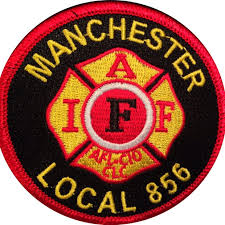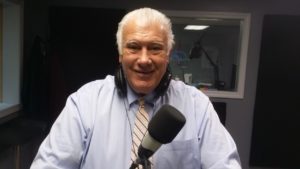Manchester’s fire department unions are looking for copycat contracts that mirror those given to the Manchester Police Patrolmans Association and the Association of Manchester Police Supervisors. Those deals gave cost of living raises of three percent a year for three years, revived Fast Day, the holiday done away with when the state adopted Civil Rights Day decades ago, as a paid holiday and added Hazardous Duty Pay of forty dollars per week in the first year and fifty dollars per week thereafter, which, since it goes to every firefighter, is a sneaky way of hiding the real percentage of the proposed pay hike. This, of course, would come on top of the three percent step increases given to all those who’ve yet to hit the top of the pay scale and the longevity raises.
The unions’ demands come in light of a mediation effort that failed and led to a review of the situation by a fact finder. The argument presented to the fact finder by the Manchester Professional Fire Fighters Association and the Manchester Association of Fire Supervisors was basically “the cops got it.” The city’s argument was basically “we can’t afford it.” Unsurprisingly, the fact finder found on behalf of the unions, though it is not-binding on the city.
You may recall that the city and the fire unions had a deal pending on the table when the police unions did an end-run around the city’s negotiator and brokered a deal directly with some members of the Board of Mayor and Aldermen. They pulled the deal after the Patrolmans Association’s contract was approved over the veto of Mayor Ted Gatsas. In the interim, a one year status quo deal was inked, actually two of them were inked, granting one percent colas in conjunction with a continuation of all other terms.
While numbers haven’t been made available, the police union contracts have blown a more than nine hundred thousand dollar hole in the police department’s budget this year and caused a two and one half million dollar spending spike, or roughly twelve percent, in the police department’s budget for the coming fiscal year.
Expect the topic to come up at tomorrow night’s special meeting of the Board of Mayor and Aldermen that has been called to address the city budget, which must be adopted by the board by Midnight tomorrow night or else the budget Gatsas proposed in February will, by default, become the city budget. If a budget gets vetoed tomorrow night and the veto is not overridden, then the board will have until June thirtieth to adopt a budget before the Gatsas budget would otherwise go into effect. In multiple interviews here on Girard at Large, Gatsas has said he’d have no problem if his budget went into effect.
Outside the fire union contracts, the board is wrestling with a request for increased school spending, shortfalls in the severance and contingency accounts, and concerns over health insurance funding.
News from our own backyard continues after this.
Manchester Fire Department officials are raising alarms in the opioid crisis. In an email sent Friday afternoon, Emergency Medical Services Officer Christopher Hickey wrote the month was off to a terrible start. In the first four days of June, Hickey said there were eighteen suspected overdoses. In the first eight days, there were a total of twenty six. Three were fatal. Hickey was also concerned that those revived were requiring three doses of Naloxone, on average; a testimony to the potency of the drugs people were taking. He speculated that a recent round up of over thirty heroin and fentanly dealers in Lawrence had caused addicts in Manchester to find different suppliers for their drugs, which meant they didn’t know what they were getting, leading to their overdose.
Hickey did find a silver lining in the overdose cloud. Last Wednesday, the Safe Station initiative set a one day record for intake visits. Fifteen people came through the doors of a Manchester fire station in a twenty four hour period of time. Hickey said there’d been far more people coming in for help than overdosing. He also said the most encouraging sign was that the number of repeat clients is quite a bit lower for the month compared to new clients. This means, he wrote, that more people are talking about the success of this program and more are coming in for help as a result.
Several aldermen reacted to Hickey’s report. At-Large Alderman Joe Kelly Levasseur questioned whether or not the influx of people visiting Safe Station was a result of the recent raids in Lawrence because those who lost their dealers couldn’t get heroin. Ward Twelve Alderman Keith Hirschmann questioned how well the recently implemented drug court program was working. And, Ward Ten Alderman Bill Barry responded by saying that “we’re not winning the fight against the epidemic, but were surviving: it. He also seemed to miss Hickey’s point about the number of repeat visitors going through Safe Station being relative to the number of new comers, saying repeat visitors were a good thing, not a negative. Wrote Barry, quote:
Sometimes it takes several attempts for someone to finally get to the point that they are sick and tired of being sick and tired.
With the expected high temperatures and bright sun over the next few days, the town of Milford is urging folks to take care of themselves, their families, friends and neighbors. In an alert sent over the weekend, officials said to stay hydrated, never leave kids or pets unattended in cars, not even for a few minutes, and if outside, find some shade. They also recommended folks check in on the elderly, especially if they don’t have air conditioning, to ensure they’re hydrated and otherwise well.
Stay cool and enjoy the summer weather.
That’s NEWS from our own backyard! Girard at Large hour ___ is next!
[soundcloud url=”https://api.soundcloud.com/tracks/327694593″ params=”auto_play=false&hide_related=false&show_comments=true&show_user=true&show_reposts=false&visual=true” width=”100%” height=”450″ iframe=”true” /]














